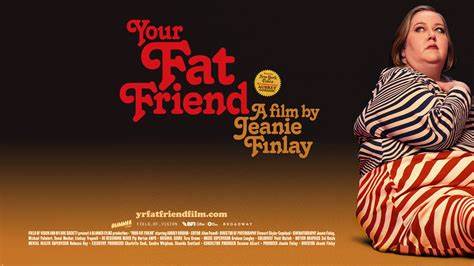Running time – 95.55 minutes
Dynamic Pricing
ARC’s policy is to set ticket prices based on demand, like budget airlines, which means we set a price when the event goes on sale and then sometimes put the price up or down depending on how the show is selling. Usually, the price will increase as we get closer to the event, so it is advantageous to book in advance, although sometimes we will put special offers on and reduce the price. Our website will always show the current ticket price.

ARC’s theatre and dance performances are priced on a Pay What You Decide basis, which means you don’t have to pay until after you have seen a show!
We want to encourage more people to come and see shows at ARC, more often. Pay What You Decide not only allows you to pay what you can afford, rather than a fixed ticket price, but also removes the financial risk of buying a ticket for a show in advance without knowing whether you are going to enjoy it or not.
Tickets are available to book in advance as usual, but there is no obligation for you to pay until after you have seen the show. You can then decide on a price which you think is suitable based on your experience, which means if you haven’t enjoyed it at all, you don’t have to pay anything.
All money collected will help ARC pay the artists who have performed, and we therefore hope you will give generously.
Please ensure you have arrived and collected your tickets 15 minutes before the show starts in order to secure your seats. At the end of the show, you can decide what to pay, either by cash on the door or by card at the Box Office.
Seating: Allocated - See Seating Plan for More Details
The screening on Thu 14 Mar at 2pm will have descriptive subtitles and be relaxed for people living with dementia.
Made over 6 years, acclaimed director Jeanie Finlay charts the rise of writer and activist Aubrey Gordon from anonymous blogger to NYTimes best selling author and beloved podcaster. Her aim? A paradigm shift in the way we see fat people and the fat on our own bodies.

Her searingly honest writing describes what it’s like to be that fat person on the plane….. and how the fantasies, peddled by a diet and wellness industry worth $26 billion a year are on a par with the lies that Big Tobacco told the public in the 1950s. (95% of diets fail for lasting weight loss). And how the biggest threat to fat people’s health might just be the bias that some many health care providers hold for fat people….and about her own fractured relationship to her body. She spent a decade campaigning for LGBTQIA rights so she knows that change is possible.

Now it’s time to advocate for herself. This isn’t about “body positivity” co-opted by brands to sell fat-kinins to size 16 women. Her aim? A paradigm shift in the way we see fat people and the fat on our own bodies. It has brought her an insatiable worldwide audience and threats to her life. The most meaningful personal change is when her family start listening to her message. YOUR FAT FRIEND, a film about fatness, family, the complexities of making change and the deep, messy feelings we hold about our bodies.
We also have a 20-min recorded Q&A after the screening.
Content Warning – Swearing, eating disorders
‘big-hearted portrait of author, podcaster and activist Aubrey Gordon’ – ★★★★ The Guardian
‘Aubrey Gordon explores the impact of anti-fat bias in this empathetic documentary’ – BFI
‘It’s an intriguing portrait of a characterful person marginalised by society’ – Time Out
Director – Jeanie Finlay
Cast – Aubrey Gordon, Michael Hobbes, Aubrey’s parents Rusty and Pam
-
Information about screenings with descriptive subtitles
Descriptive subtitles, sometimes referred to as subtitles for D/deaf and hard-of-hearing people or captions, transcribe dialogue and relevant aspects of the soundtrack, including music and sound effects, attempting to give D/deaf and hard-of-hearing viewers an equal experience to those who are able to watch films without descriptive subtitles. Descriptive subtitles would include speech identifiers and descriptive elements such as [door slamming] and [kettle whistling].
-
Seating accessibility information
Cinema
Seat size
Seats in the Cinema are 45cm (172/3“) wide and 46cm (18“) deep, are 40cm (152/3“) from the floor, and have 12cm (42/3“) between seats.
Armrests
Seats in the Cinema have armrests that do not fold away, and cannot be completely removed.
Legroom
Seats in the cinema have 30cm (112/3”) of legroom in front of seats, with additional legroom on row A and seats B1-B4 and B11-B14.
Further information
If you have any questions about accessibility our Box Office team are always happy to help and can be contacted on 01642 525199 or by emailing [email protected] - you can also tell us about your access requirements when prompted to do so during the online booking process.
-
BBFC rating information (may contain spoilers)
Threat and horror
A woman appears distressed as she reveals cyberbullies have maliciously published her personal information on an online forum. A series of threatening social media messages appear on-screen, including death threats and messages urging the woman to take her own life.
Language
Occasional strong language (‘f**k’) occurs, as well as moderate bad language (‘bitch’) and milder terms such as ‘shit’, ‘asshole’, ‘jerk’, ‘Jesus’ and ‘Christ’.
Discrimination
A woman discusses her anxiety around being excluded from public spaces due to her weight, including her fear of being forced to leave an aeroplane. References are also made to the discriminatory origins of the Body Mass Index.
Theme
Verbal references to eating disorders include the harmful effect of diet culture on young people and misconceptions around anorexia. A woman talks about her eating disorder and acknowledges the need for treatment.



